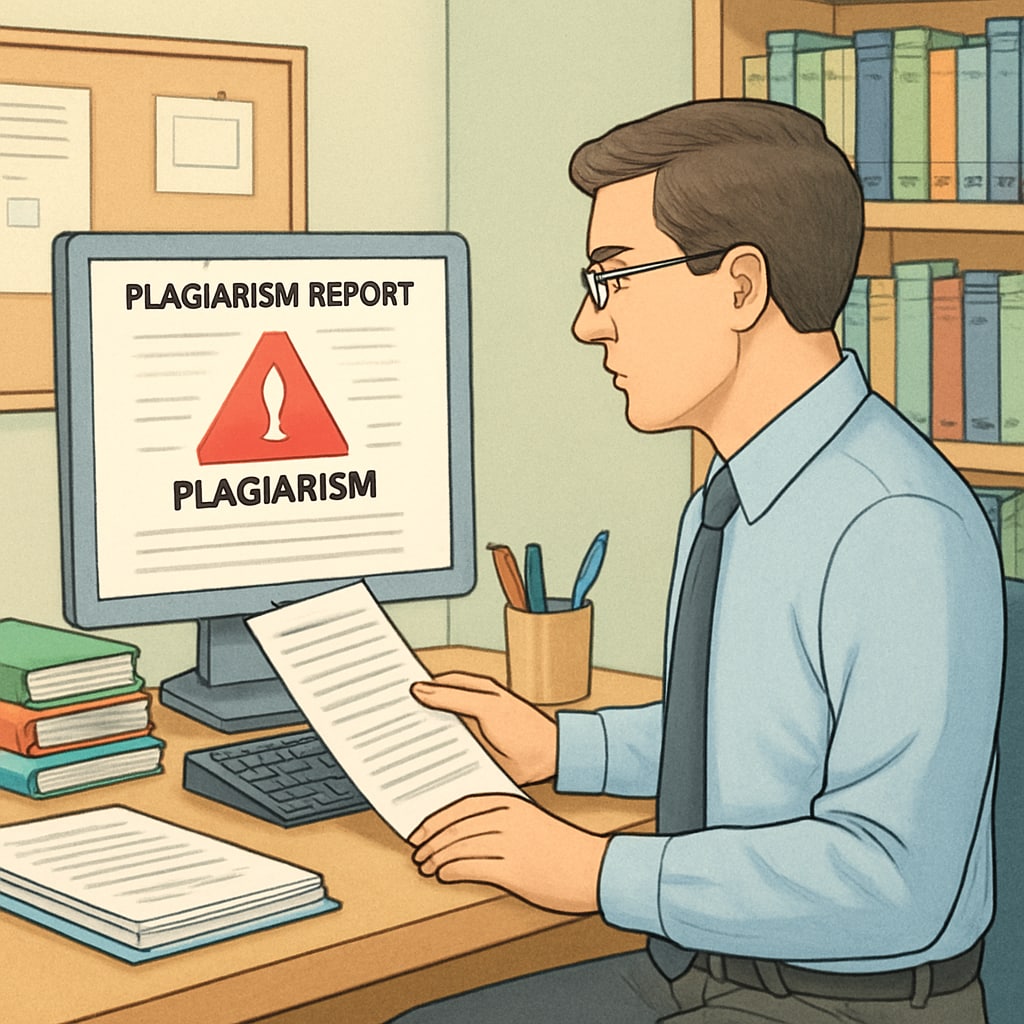Accusations of plagiarism are serious matters in academic settings, especially when involving professors or educators. However, false plagiarism accusations in K-12 education, where teachers or professors incorrectly accuse students, can have deeply damaging consequences. These situations raise critical questions about fairness, transparency, and the protection of student rights within the academic system.
For many students, being wrongfully accused of plagiarism can lead to emotional distress, academic setbacks, and loss of trust in the educational institution. While academic integrity must be upheld, it is equally important to ensure that accusations are supported by proper evidence and evaluated using fair systems. This article explores the impacts of false plagiarism claims in K-12 education and advocates for more transparent mechanisms to protect students and maintain educational justice.
Understanding the Complexity of Plagiarism Accusations
Plagiarism refers to presenting someone else’s work or ideas as one’s own without proper attribution. While this concept may seem straightforward, its application in K-12 education can be highly complex. Younger students are often still learning the rules of citation, and their mistakes may not stem from malicious intent but rather from a lack of understanding.
Unfortunately, some educators may misinterpret these errors as deliberate plagiarism, leading to wrongful accusations. Such mistakes can be exacerbated by automated plagiarism detection tools, which, while helpful, are not infallible. For example, these tools may flag common phrases or incorrectly attribute originality, contributing to false claims against students. This highlights the need for educators to verify accusations manually and consider the developmental stage of the student before making judgments.

The Emotional and Academic Impacts on Students
False plagiarism accusations can have far-reaching consequences for students. Emotionally, such accusations can lead to feelings of shame, embarrassment, and anxiety. Students may begin to doubt their own abilities and lose confidence in their academic work. In extreme cases, they might disengage from learning altogether.
Academically, the repercussions can be equally damaging. A false accusation may result in penalties such as a failing grade, suspension, or even expulsion, depending on school policies. These outcomes not only affect the student’s record but also hinder their future opportunities, such as college admissions or scholarship eligibility. Therefore, it is crucial to address these issues to prevent long-term harm to students’ development and aspirations.

Advocating for Transparent and Fair Evaluation Systems
To prevent false plagiarism accusations, schools must adopt transparent and equitable evaluation systems. Educators should receive training to distinguish between intentional plagiarism and unintentional errors, particularly in younger students who are still learning academic standards. Additionally, schools should establish clear guidelines for handling plagiarism accusations, ensuring that students have the opportunity to explain their work before judgments are made.
Implementing peer review panels or committees to assess plagiarism cases may also enhance objectivity and fairness. These panels could include educators, administrators, and even student representatives to ensure a balanced perspective. Moreover, schools should invest in educational programs that teach students proper citation practices and the importance of academic integrity from an early age.
By fostering a culture of understanding and fairness, educational institutions can minimize the risk of false accusations while promoting genuine academic growth among students. For additional insights, resources such as Wikipedia’s Plagiarism article and Britannica’s coverage on plagiarism provide valuable context for understanding this issue.
Conclusion: Striking a Balance Between Integrity and Justice
While upholding academic integrity is essential, it should not come at the cost of fairness and student rights. False plagiarism accusations in K-12 education challenge the credibility of the academic system and can irreparably harm students’ confidence and future prospects. By implementing transparent evaluation mechanisms and prioritizing empathy in academic settings, educators can ensure that accusations are just and evidence-based.
Ultimately, striking a balance between academic integrity and justice requires a collaborative effort from educators, administrators, and students. Developing a fair and inclusive system will not only protect students from wrongful accusations but also reinforce the principles of honesty and accountability in education.
Readability guidance: Use concise paragraphs and clear transitions to improve flow. Leverage lists where applicable to summarize key points. Maintain 30% usage of transition words to enhance readability.


